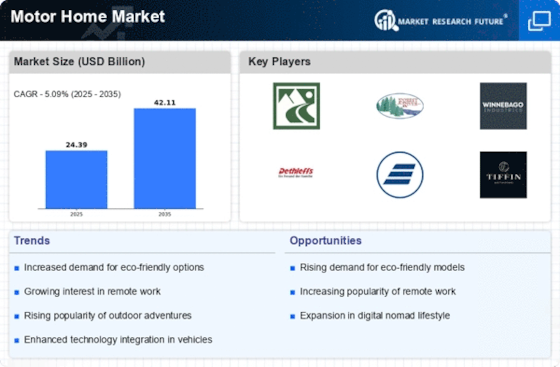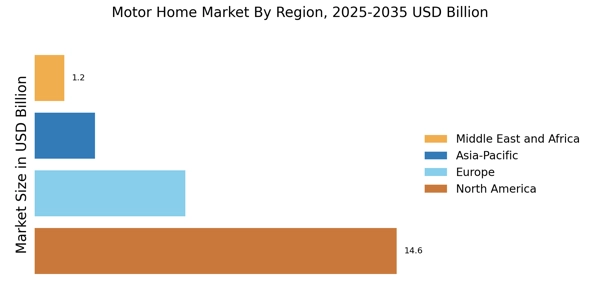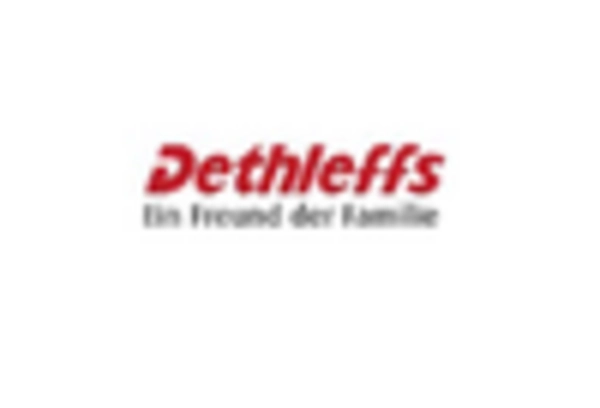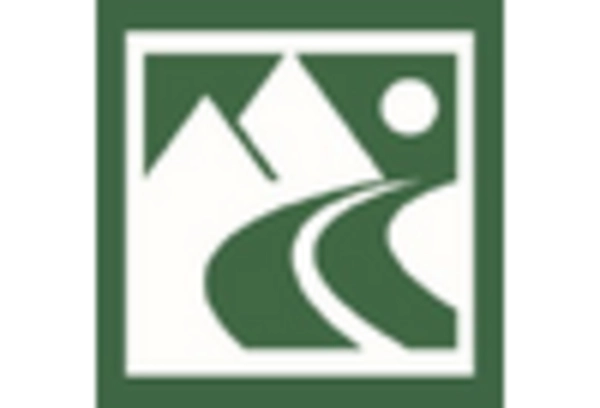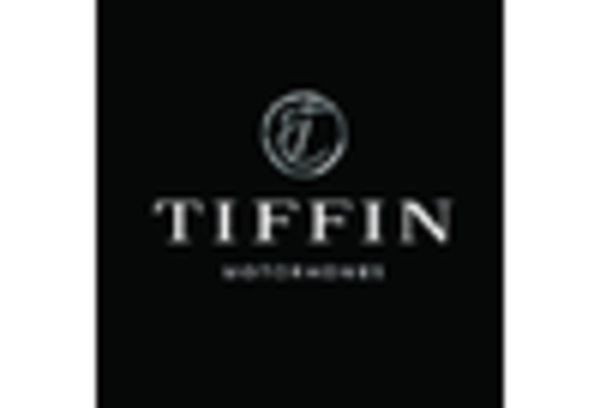Expansion of the Rental Market
The Motor Home Market is experiencing a notable expansion in the rental segment, driven by changing consumer preferences and economic factors. More individuals are opting for rental motor homes as a cost-effective way to enjoy travel without the long-term commitment of ownership. Data indicates that the rental market for motor homes has grown by approximately 15% annually, reflecting a shift in how consumers approach travel. This trend is particularly appealing to younger demographics who prioritize experiences over ownership. Additionally, the rise of peer-to-peer rental platforms has made it easier for consumers to access a variety of motor home options, further fueling this growth. As the rental market continues to expand, it presents new opportunities for businesses within the Motor Home Market to cater to this evolving consumer behavior.
Shift Towards Sustainable Travel Options
The Motor Home Market is witnessing a significant shift towards sustainable travel options, as consumers become more environmentally conscious. This trend is reflected in the increasing demand for eco-friendly motor homes that utilize alternative fuels and energy-efficient technologies. Recent statistics indicate that sales of electric and hybrid motor homes have risen by over 25% in the past year, highlighting a growing preference for sustainable travel solutions. Manufacturers are responding by investing in research and development to create vehicles that minimize carbon footprints while maximizing comfort and functionality. This focus on sustainability not only attracts environmentally aware consumers but also aligns with broader societal goals of reducing environmental impact. As a result, the Motor Home Market is likely to see continued growth driven by this commitment to eco-friendly practices.
Rising Interest in Remote Work and Travel
The Motor Home Market is benefiting from the rising interest in remote work, as more individuals seek to combine work and travel. The flexibility of remote work allows consumers to explore new destinations while maintaining their professional responsibilities. Recent surveys indicate that nearly 40% of remote workers express interest in using motor homes as mobile offices, highlighting a unique market opportunity. This trend is particularly appealing to millennials and Gen Z, who value experiences and work-life balance. As a result, manufacturers are increasingly designing motor homes with dedicated workspaces and high-speed internet capabilities to meet this demand. This convergence of work and leisure is likely to drive sustained growth in the Motor Home Market, as more individuals embrace the lifestyle of working from the road.
Technological Advancements in Motor Homes
Technological integration within the Motor Home Market is transforming the way consumers interact with their vehicles. Innovations such as smart home technology, advanced navigation systems, and energy-efficient appliances are becoming standard features in modern motor homes. The incorporation of solar panels and battery storage systems is particularly noteworthy, as it aligns with the increasing consumer demand for sustainability. Data suggests that nearly 30% of new motor homes are now equipped with these technologies, enhancing the overall user experience. Furthermore, connectivity features such as Wi-Fi and mobile app controls are appealing to tech-savvy consumers, making motor homes more attractive. This technological evolution not only improves convenience but also positions the Motor Home Market as a leader in the recreational vehicle sector, appealing to a broader audience.
Increased Demand for Recreational Activities
The Motor Home Market experiences a notable surge in demand for recreational activities, as more individuals seek outdoor experiences and travel options. This trend is driven by a growing interest in camping, road trips, and nature exploration. According to recent data, the number of camping households has increased significantly, indicating a shift towards outdoor leisure. As people prioritize experiences over material possessions, the appeal of motor homes as a means to explore diverse landscapes becomes increasingly attractive. This demand is further fueled by the desire for social distancing and safe travel options, leading to a robust growth trajectory for the Motor Home Market. Manufacturers are responding by enhancing features and amenities in motor homes to cater to this evolving consumer preference, thereby solidifying their position in the market.


